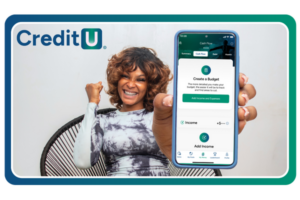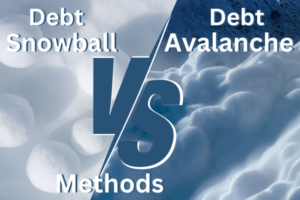When debt starts piling up, you may be contemplating your two options: debt relief vs bankruptcy. There are many types of debt relief, and there are also different types of bankruptcy. It can be overwhelming to learn about all the different options available for those struggling with debt. How do you know which option is better for you? We’ll explain the pros and cons of each.
Different Types of Debt Relief
There are several options for debt relief, including debt consolidation and debt management. With these options, you combine all your monthly bills to your creditor into a single payment. The difference is that debt consolidation is a loan, while debt management is a program administered by a nonprofit credit counseling agency. The benefit of both of these options is that it is more convenient to pay one monthly payment, and your payment is likely lower than it would be otherwise.
As far as which is the “better” option for you, it depends on your credit. Because debt consolidation is a loan, in order to qualify for it, you need good credit. If you don’t have a credit score of 700 or higher, you may get turned down. Even if you can get the loan, your interest rate might be so high that it isn’t worth it. In a debt management program, there is no minimum credit score requirement. Because it is not a loan, your credit score has no influence on you being able to start the program.
Both debt consolidation and debt management can help your credit scores. With a debt consolidation loan, as long as you make your payments on time and in full, your credit score should go up. Payment history is the most significant factor in determining your credit score. Though a debt management program is not a loan, it can still increase your score because you are paying off your debt, lowering your credit utilization ratio.
Chapter 7 and Chapter 13 Bankruptcy
First things first, what exactly is bankruptcy? Bankruptcy is a proceeding in a federal court in which an insolvent debtor’s assets are liquidated and the debtor is relieved of further liability. If you choose to go this route, there are two types of bankruptcy you should know about: Chapter 7 and Chapter 13.
Chapter 7 deals with liquidation, while Chapter 13 deals with reorganization. Chapter 7 bankruptcy is when the court appoints a Trustee who may liquidate or sell some things that you own to pay your creditors. Most of your debt will be canceled. However, you may choose to pay some creditors, usually to keep a car or home. Chapter 13 bankruptcy is when your debt is reorganized into a single monthly payment. The payment will continue for 36 to 60 months. In no case may a plan provide for payments over a period longer than five years. You do not have to repay all of your debt. You pay only as much as you can afford, but the minimum payment may be affected by property you want to keep. When you complete the payments, debt not paid is discharged.
Bankruptcy can have a very negative impact on your credit score. It also stays on your credit report for years. Chapter 13 bankruptcy stays on your credit report for seven years. Chapter 7 bankruptcy can stay on your credit report for ten years.
Debt Relief vs Bankruptcy: Final Thoughts
Now that you know the pros and cons of debt relief vs bankruptcy, which option will you choose? You understand your own financial situation better than anyone else. Of course, that doesn’t mean you can’t ask for advice. If you aren’t sure what option is better for you, it may be a good idea to call a credit counselor. During a credit counseling session, can help you figure out your next steps. They will ask you about your income, expenses, assets, and liabilities. From there, they can help you come up with a workable budget and a plan to get out of debt. They can help you decide if debt relief or bankruptcy is the way to go.
If you are struggling to pay off debt, ACCC can help. Sign up for a free credit counseling session with us today.







